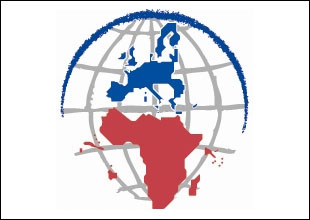All eyes on CARIFORUM as EPA benchmark
 Paramaribo, Suriname, 27 November 2012/ ACP: As the sole region out of seven ACP negotiating blocs to sign a full free trade deal the European Union (EU), the fate of the CARIFORUM-EU Economic Partnership Agreement (EPA) will likely influence EU trade talks with other groupings.
Paramaribo, Suriname, 27 November 2012/ ACP: As the sole region out of seven ACP negotiating blocs to sign a full free trade deal the European Union (EU), the fate of the CARIFORUM-EU Economic Partnership Agreement (EPA) will likely influence EU trade talks with other groupings.
“There is an opportunity here to use the Caribbean experience as a model for other ACP regions. However, if there are too many difficulties in implementing the CARIFORUM EPA – well, it could either discourage or encourage the other regions,” said ACP Secretary General Dr Mohamed Ibn Chambas at a press conference in Paramaribo, Suriname, where the ACP-EU Joint Parliamentary Assembly is currently taking place.
Since negotiations of EPAs began in 2002, only the Caribbean have concluded an agreement with the EU as a region.
But implementation has so far been slow. Signed in 2008, only five of the 15 CARIFORUM countries have ratified, along with 10 of the 27 EU members.
At the ACP-EU Joint Parliamentary Assembly in Paramaribo, politicians heard reports of lacklustre progress, despite assurances from CARIFORUM governments. Snags in tariff liberalisation, such as customs duties on motor vehicles and paper products in Jamaica, still need to be ironed out. Support from the non-business sectors of society has been slow to gain.
“We need to listen more to NGOs. At first, they were full of hope. However after five years there’s a lot of disappointment. It seems the [EPA] Agreements are too complex. The Agreements underestimated the resources and energy needed to implement them,” said MEP Catherine Bearder, adding that many new laws would also have to be created.
Still, European Commission’s Director of Trade and Development Policy at DG Trade Mr Peter Thompson stressed the positive.
For one, the Caribbean region has formed special institutions to ensure political and technical supervision of trade. These include Joint EPA Council of ministers, Joint Trade and Development Committees (senior officials) and consultative Committees to include civil society, NGOs and academia.
“The process of creating these institutions has taken some time, but we’re almost there,” he said.
He added: “The EPAs are not a magic pill… The Caribbean cannot expect that EPA alone will develop a country. Governments need to adopt and implement necessary reforms [and] the region needs to continue with the economic integration process.”
ACP Co-Chair of the Joint Parliamentary Assembly, Hon. Musikari Kombo (Kenya) emphasised that EPAs were designed as tools for development.
“Our experience in the last 10 years of negotiations has indicated that perhaps this is one of the reasons that the negotiations have dragged on for so long. And we know that part of the problem is that EU trade negotiators have been obsessed with a narrow liberalization agenda which focused only on trade aspects, including issues that definitely inimical to the development aspirations of ACP States,” he told the joint meeting in his opening statement.
EU Co-Chair Hon. Louis Michel (Belgium), a strong supporter of EPAs, called the Caribbean-Eu agreement “a good choice”.
He said Senegal’s President Macky Sall will be submitting a list of objections and concerns over EPAs from African and Pacific countries, with the aim of working through these together with the EU side.
– ACP Press
